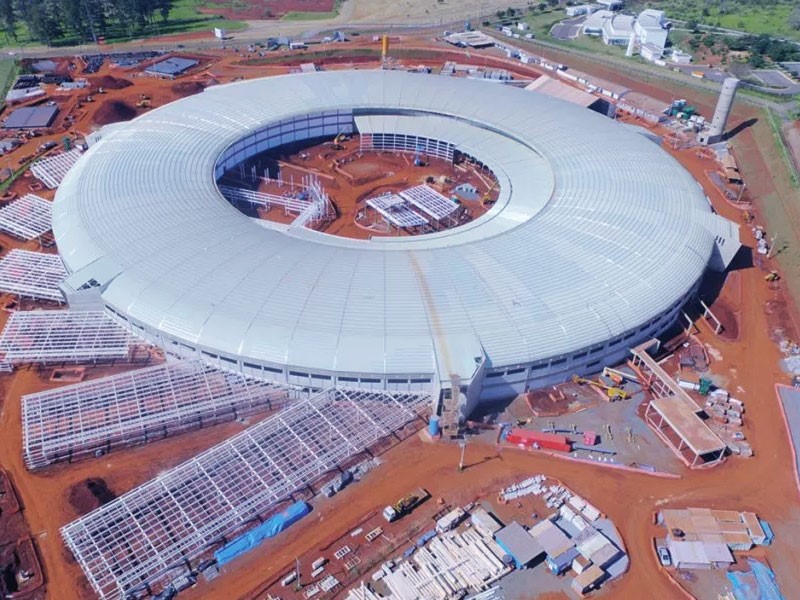Twenty-eight of
SWEP’s P80H models were used as economizers in the TurboTrans Oil Free Smardt chillers that were installed to provide the cooling at the cutting-edge Sirius laboratory in Campinas, Brazil.
Sirius, the new Brazilian Synchrotron particle accelerator, is currently being constructed in Campinas, Brazil. When completed, it will be the largest and most complex scientific infrastructure ever built in Brazil and one of the first 4th-generation Synchrotron Light Sources in the World. It is planned to firmly place Brazil as a world leader in the production of Synchrotron Light and is designed to be the brightest of all the equipment in its energy class.

The Synchotron particle accelerator will allow the study of tissues and materials at the atomic level. This information will be used in the future research of currently incurable diseases, new engineering materials, protein testing (DNA), and many other applications that benefit society and humanity.
Transcalor will supply 5,400R's (16 million kcal / hr) of TurboTrans Oil Free Smardt Centrifugal Chillers to this state of the art facility. 28 of SWEP’s
P80Hx96 models were used as economizers in the chillers. There were 7 chillers total and each chiller contained 4 SWEP P80Hx96’s. SWEP’s BPHEs (brazed plate heat exchangers) delivered a clear advantage in efficiency by raising the capacity of each chiller from 450 USRT to 505 USRT. Transcalor's High Efficiency Chillers, designed with SWEP’s BPHEs, will be responsible for both the cooling of the particle accelerator equipment and the air conditioning of the laboratory.
SWEP is honored to partner with Transcalor on this exciting project for Sirius Laboratory which could yield life-changing and ground-breaking discoveries.
You can read more about this project and watch an accompanying video on Transcalor’s website
here.